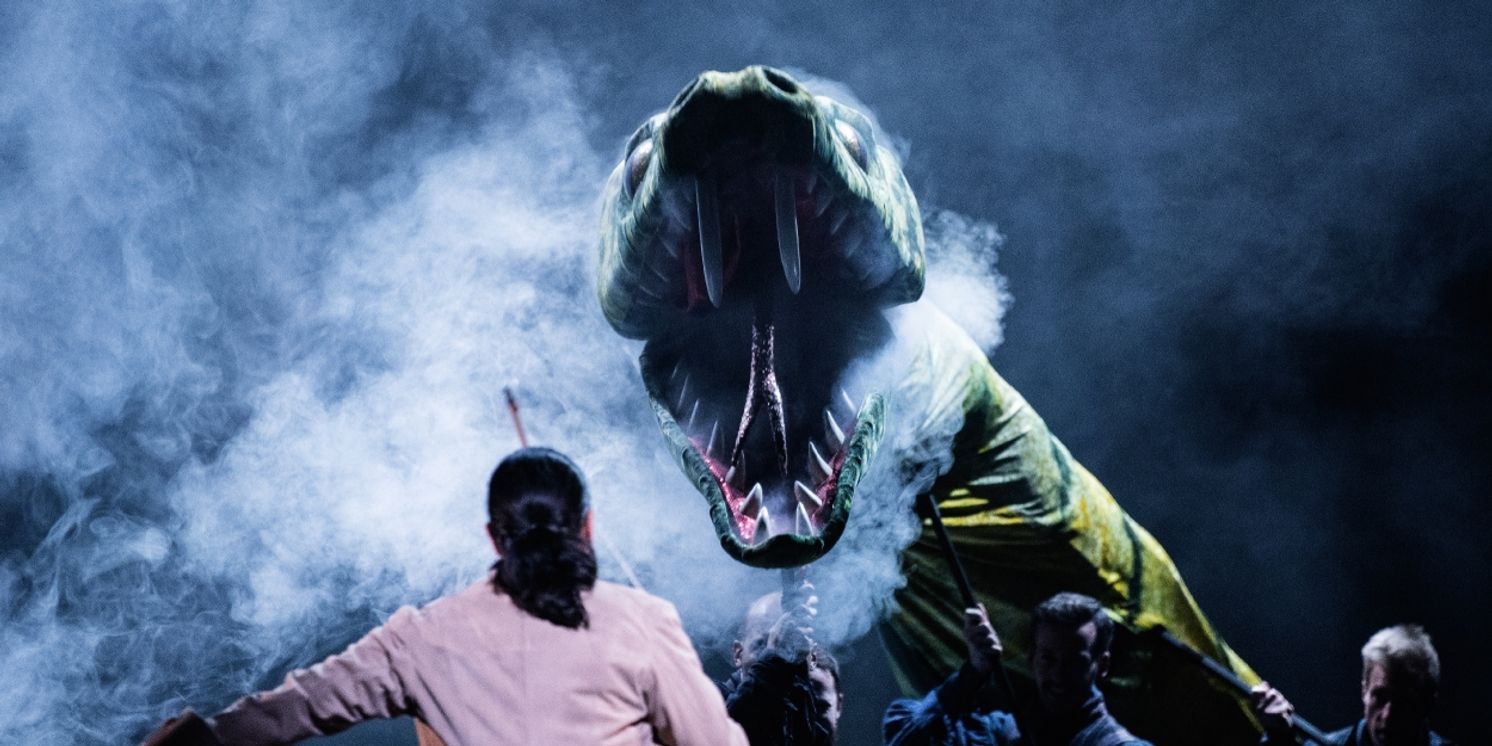Review: THE MAGIC FLUTE, Royal Opera House
David McVicar's version is Yuletide feast for the eyes, the ears and the funny bone.

![]() As the wrangles continue over the funding of the arts in general - and London opera in particular - up pops David McVicar's The Magic Flute to show just what the fuss is all about.
As the wrangles continue over the funding of the arts in general - and London opera in particular - up pops David McVicar's The Magic Flute to show just what the fuss is all about.
For those looking for a complex storyline streaked with silliness and darkness then wrapped in sublime music and spectacular visuals, this is the opera for you. There is a plot in there about a prince and his friend looking for love in all the wrong places but that's rarely the reason people come back time and again to this classic from Wolfgang Amadeus Mozart.
McVicar's treatment debuted in 2003 and here it is back in Covent Garden for its eleventh revival barely a year after its last outing and directed this time around by Angelo Smimmo. This much-loved version features two different casts and conductors for the current run and, on opening night, batonist Maxim Emelyanychev was in imperious form on the podium.
Every scene brings fresh ideas and new wonders. We open with an immense dragon puppet flying around the stage to the consternation of our hero Tamino. After he faints away, three ladies (Alexandra Lowe, Gabrielė Kupšytė and Kseniia Nikolaieva) rescue him. Tamino (Filippe Manu) awakens and with new friend Papageno (Gyula Orent) begins a Homeric quest to rescue his heart's desire Pamina (Anna Prohaska).The dragon isn't seen again but such exquisite staging is a statement of intent for what it is come from designer John MacFarlane.
Manu is on fine form here even in an underwritten role which sees him mainly play a relatively passive hero shuttled around first by the Queen of the Night (Aigul Khismatullina) and then by Pamina's captor Sarastro (Brindley Sherratt). His expressive scenes with Prohaska show genuine chemistry and provide the emotional core of this opera.
It's Papageno, though, who is arguably the star here. His slapstick antics light up the stage and - whether he is running into walls, jumping onto a bed or exhorting the virtues of wine - Orent does a splendid job of keeping the tone upbeat amid a plot which diverts into the cul-de-sacs of mystic and masonic realms far too often. Sherratt and Khismatullina are both deliciously vibrant as the arch-nemeses destined to meet for one final confrontation, especially the latter with the famous "Der Hölle Rache" aria.
With its knockabout comedy and a book riddled with patriarchal and misogynist overtones, this is never going to be one for the opera purists or the ultra-woke. More can possibly be done in the latter area to raise it up to modern values before its next run without affecting the overall drama. If, as it is looking more and more likely, the ROH becomes London's only major opera house by this time next year, it may be aiming to attract a wider audience and this could be one way to do it.
The Magic Flute continues at the Royal Opera House until 28 January 2023.
Photo Credit: Camilla Greenwell
Reader Reviews
Videos

